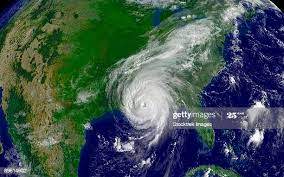Prepare for Hurricane Season       Â

Gulf Coast Hurricane
From June through November, the Atlantic and Gulf of Mexico coastal regions are highly susceptible to hurricanes, tropical cyclones or severe tropical storms. These natural disasters can cause significant damage to areas along the coast and those several hundred miles inland. Stemming from hurricanes, other disasters, such as tornadoes, floods, landslides or mudslides, can cause additional damage. While all of the destruction caused from these storms cannot be prevented, taking steps to prepare for hurricane season can lessen the physical and emotional damage to you, your family and your home.
There are actually ways on how you could be prepared before the hurricane comes. Although you may not live near a coastal area, you could experience devastating effects of a hurricane, such as torrential rains, wind and hail damage, even tornadoes. Consider some of the tips below in order not to face a storm unprepared:
Become a hurricane expert.
There are various classifications (tropical depression, tropical storm, hurricane and major hurricane) for hurricanes based on their maximum sustained wind speeds. Â In addition, there are various categories (1 through 5) used for forecasting and categorizing hurricanes. Â A category 1 hurricane may only cause damage to a roof or power lines, while a category 5 could cause complete collapse to structures. Â Do some research and be able to differentiate between these categories and classifications. Â It could be important to the safety of those under your care.
Know your zone: Do you live near the Gulf or Atlantic Coasts? Find out if you live in a hurricane evacuation area by contacting your local government/emergency management office.
Understand the National Weather Service  watches and warnings.
Have a plan.
You may not be able to avoid a hurricane, but you can be prepared.  Have a plan in place before a hurricane arrives so you don’t have to think about the next steps.  Ensure you have the proper insurance coverage for your home and organization, or check with your insurance agent if you’re not sure. In addition, research the community’s emergency plan, including evacuation routes and warning signals. This information can be used as you create an emergency plan for your own organization.  Lastly, look for potential hazards at your own facility. Be prepared to turn off all electrical power if there is standing water or fallen power lines, and secure structurally unstable building materials.  Prepare a list of items you’d need to take care of if a storm hit.
Put Together an Emergency Kit: Put together a basic emergency kit. Check emergency equipment, such as flashlights, generators and storm shutters.
Write or review your Family Emergency Plan: Before an emergency happens, sit down with your family or close friends and decide how you will get in contact with each other, where you will go, and what you will do in an emergency. Keep a copy of this plan in your emergency supplies kit or another safe place where you can access it in the event of a disaster. Start at the Ready.Gov emergency plan webpage.
Review Your Insurance Policies: Review your insurance policies to ensure that you have adequate coverage for your home, church and personal property.
Prepare your building.
If a hurricane destroyed your building, whether by wind or water damage, what would you lose? Start backing up important information, data, leader contact information, building and equipment inventory, and store it at an off-site location. Â In addition, take steps to minimize damage to the building, which includes covering windows with hurricane shutters, installing doors that can withstand a storm, clearing gutters from debris, checking the roof, and securing anything outside that could cause damage to the building. Â Inside, ensure all valuable objects are secured and storm-proofed.
Those are just among the tips that you might consider in order for you to be considered as safe from hurricane or any natural calamities as well. Being prepared especially being covered by insurance like church insurance could ease at least a bit of stress you might feel due to the damages being provided by the strong storm.
Find more helpful tips at –
https://www.ready.gov/hurricanes#prepare
We would like to thank GuideOne Insurance and the National Weather Service for this information.
